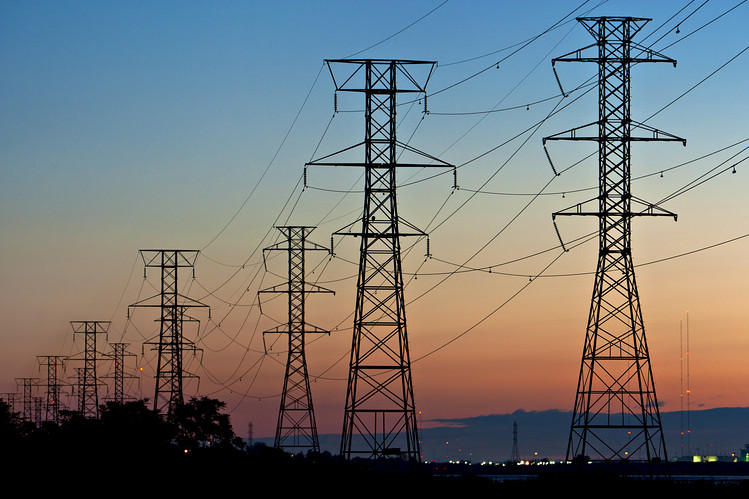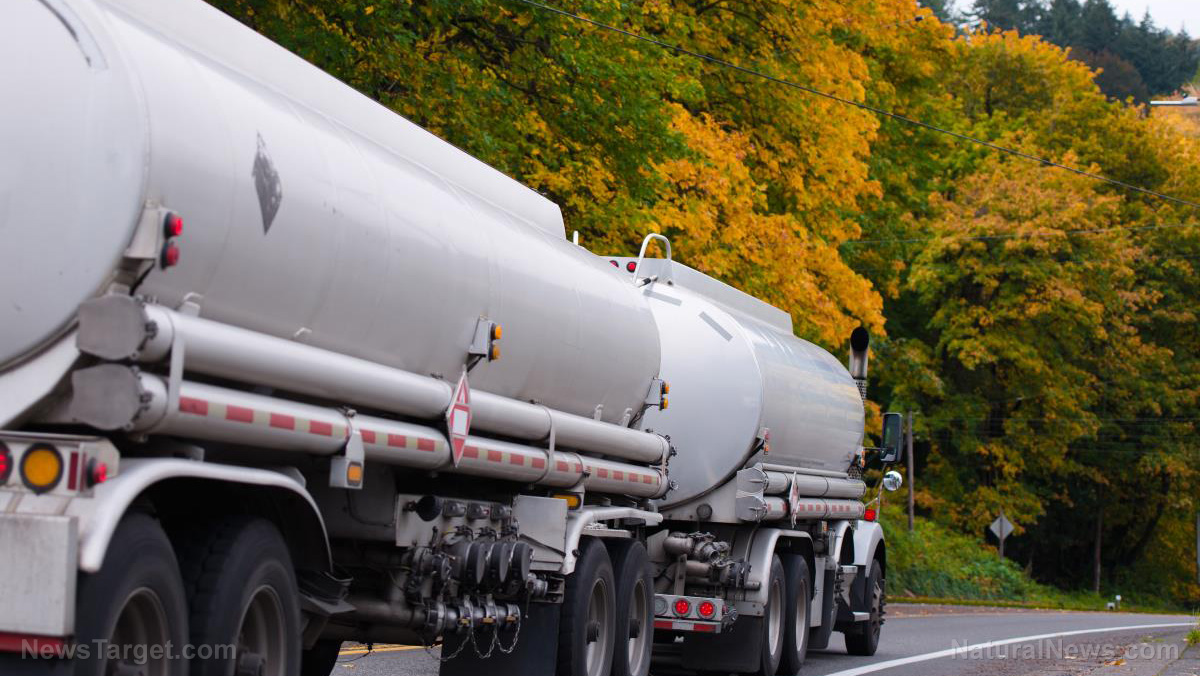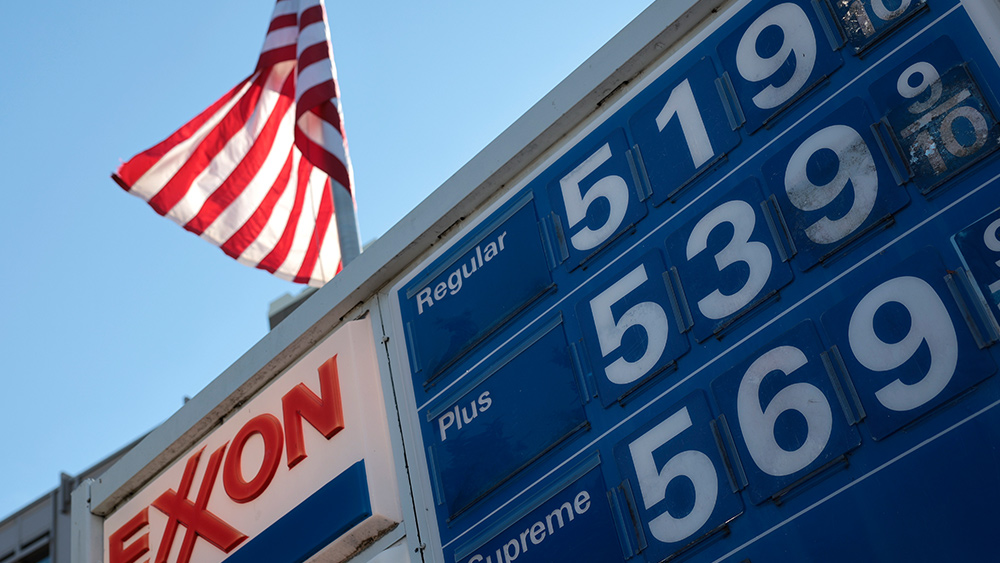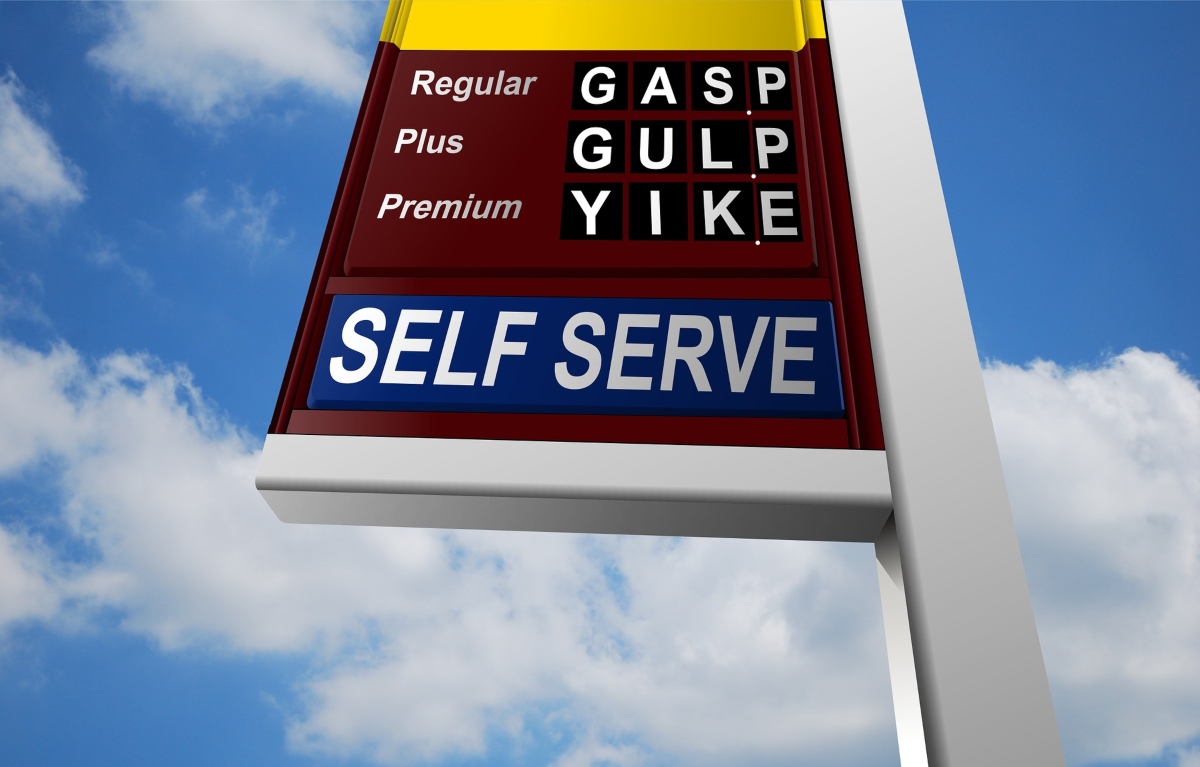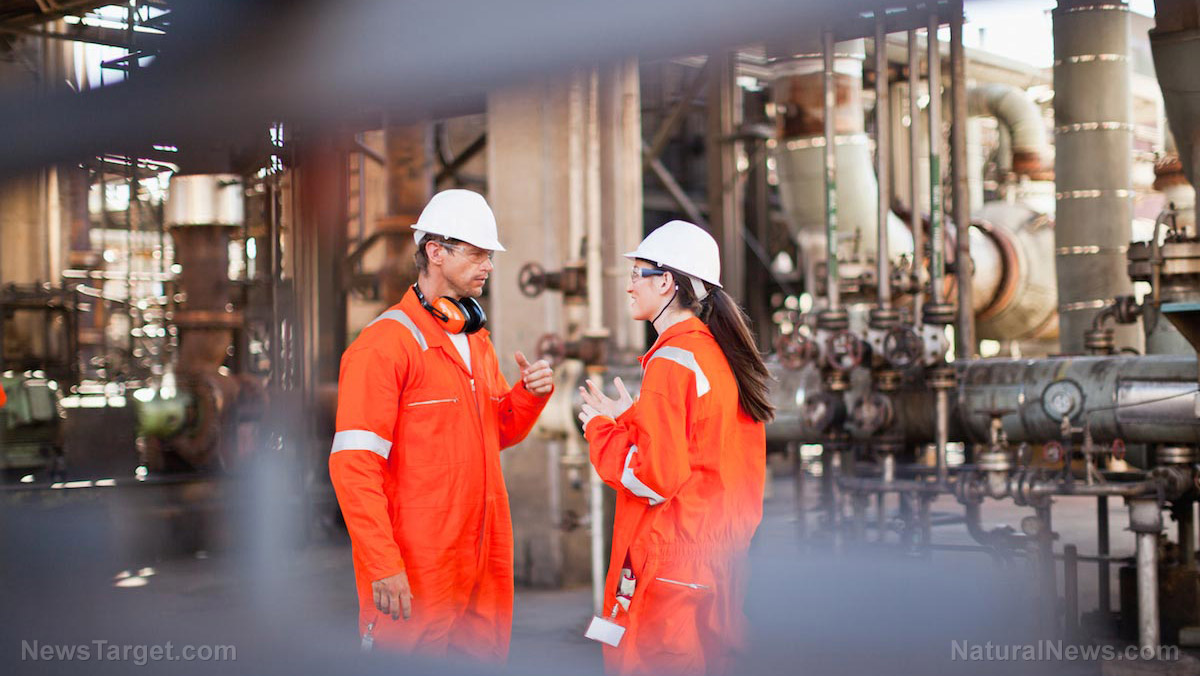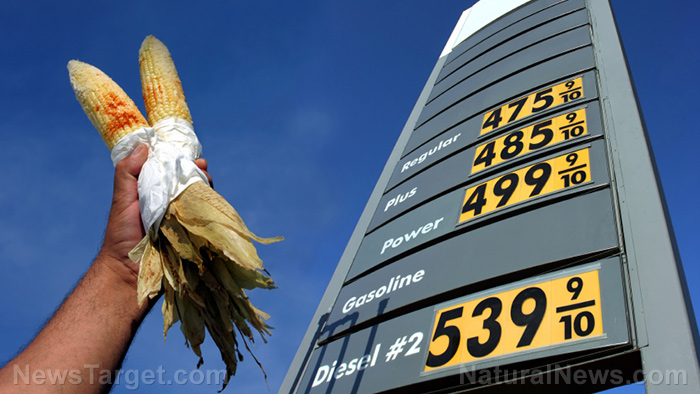Diesel prices rising rapidly, farmers suffer as off-road diesel for farm use hovers above $5 mark
06/19/2022 / By Mary Villareal

Gas prices have been increasing in the United States, but diesel has been worse — and fears of a diesel shortage this year are causing concern because it is not just retail prices that are rapidly rising: reports of farmers booking off-road diesel for farm use have been trending above the $5 mark as well.
This is an issue that is also being faced by the trucking industry from coast to coast as the average diesel price now stands at $5.77 per gallon. A year ago, it was only $3.21.
Patrick De Haan, who heads the petroleum analysis of a tech company, Gas Buddy, said it almost seems like the little live indicator in their data ticks up every five minutes.
The company tracks both diesel and gas prices in real-time, and while the pain at the pump is something that drivers see across the country, it is also an issue for agricultural producers across the U.S. (Related: Why every American should care that diesel prices are surging across the country.)
Craig Moss, a farmer in Hull, Iowa, said: “We had some farm diesel delivered yesterday, and it cost us $4.85 or $4.89 a gallon delivered. Two years ago, we bought fuel for just over $1.”
This rapid rise in input prices is eating into outlooks even when taking into account the already high livestock and grain prices. Pork producer David Newman, from Myrtle, Missouri, said: “It’s a challenging market, no doubt, buying $8 corn and $5.50 diesel; it’s a tremendous challenge for producers.”
Diesel prices could affect food availability
A Pennsylvania farmer, Kyle Kotzmoyer, said that he has a tractor hooked up to his corn planter, but with no diesel fuel, because he couldn’t afford any. The crushing reality is that record diesel fuel prices are pushing farmers like himself to the brink, and this could affect food availability.
“We have reached that point where it is very close to being a sinking ship. We are teetering on the edge right now,” Kotzmoyer, who also serves as a legislative affairs specialist for the Pennsylvania Farm Bureau, said in front of state lawmakers.
Prices for both gas and diesel climbed again, as did the price for off-road diesel. A survey of farmers on Twitter also drew a wide range of responses about the prices that they are seeing, with some reporting off-road diesel at $4.13 in the northern Corn Belt, but above $5 for those further east as well as in western states like Montana.
Research also shows that farmers are seeing nearly every input cost on their farm rise again: nitrogen prices produced the highest increase at more than 133 percent per acre year-over-year. Phosphorus and potassium fertilizers were also up nearly 93 percent during the same time. Fuel and lube prices also jumped more than 86 percent.
Baseline projections from the University of Missouri Food and Policy Research Institute also showed a sharp rise in fuel costs. “A 57% increase may or may not capture what’s happening right now throughout the whole calendar year of 2022, but it is capturing at least the part that we’re seeing right now,” Bob Maltsbarger, a senior research economist with the institute said.
The baseline projection shows that even if fuel prices get lower during the second half of the year, higher overall production costs will continue to sway balance sheets. Maltsbarger pointed out that diesel prices vary not only in geography but also by farm, especially when crops like corn require more fuel use.
While it may vary on the dollars-per-acre impact, about an equal increase on a percentage change basis could see those dollars per acre be more expensive in the current calendar year. (Related: COLLAPSE ACCELERATING: World’s biggest energy traders warn that “gas stations will run dry” of diesel.)
Kotzmoyer also made it clear that food may not be as readily available because of the fuel price surge — farmers these days may not be able to put food on the ground or they can’t get the food out because farms use diesel-operated machinery.
Diesel is a “huge, huge expense” for farmers. A Cumberland County farmer, for instance, works on around 3,500 acres with several diesel-consuming tractors, burning through about 2,000 gallons of diesel per month. Farm operations, however, don’t have to pay sales taxes on diesel fuel purchases, which gives them a minor break.
However, this could also lead farmers to decide to stop farming certain crops that are not worth the expense, further raising the threat of shortages. Some farmers are already selling seed corn or beans back to dealers, opting for hay instead, which they say has “more return on investment.”
Visit FuelSupply.news for more updates about the soaring global diesel prices.
Watch the video below for more information on how rising diesel prices can affect everyone.
This video is from the Planet Zedta channel on Brighteon.com.
More related stories:
DISMANTLING AMERICA: Massive Texas oil refinery to shut down amid record-high gas prices.
Now we are being warned that shortages of diesel fuel and electricity are coming in the months ahead.
Price of diesel reaches all-time high – what will become of food production and transport?
Sources include:
Submit a correction >>
Tagged Under:
collapse, consumer, crops, crude, diesel, diesel engine, diesel fuel, economy, energy, energy prices, famine, farm outputs, farming, food scarcity, food supply, fossil fuels, fuel, gas prices, gasoline, harvest, hunger, inflation, oil prices, retail, risk, shortages, starvation, supply chain
This article may contain statements that reflect the opinion of the author
RECENT NEWS & ARTICLES
COPYRIGHT © 2022 FuelSupply.news
All content posted on this site is protected under Free Speech. FuelSupply.news is not responsible for content written by contributing authors. The information on this site is provided for educational and entertainment purposes only. It is not intended as a substitute for professional advice of any kind. FuelSupply.news assumes no responsibility for the use or misuse of this material. All trademarks, registered trademarks and service marks mentioned on this site are the property of their respective owners.

